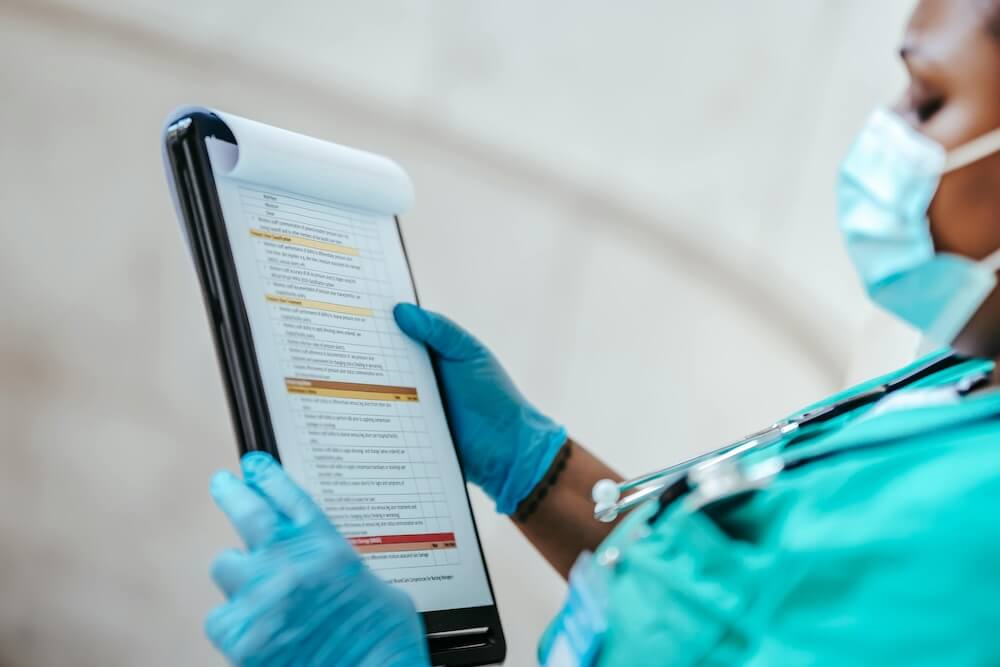It can be extremely dangerous to mix certain psych meds with alcohol. A common psych med that people often mix with alcohol, not realizing the danger, is Seroquel. If you are drinking regularly and taking Seroquel, it can lead to adverse effects. It’s not medically advisable to mix Seroquel and alcohol.
It’s important to understand the dangers of mixing it with alcohol if you are taking this medication. By knowing how Seroquel works and how it interacts with alcohol, you can avoid potentially life-threatening complications.
What Is Seroquel?
Seroquel (also known as Quetiapine) is a second-generation atypical antipsychotic medication useful in treating psychotic disorders like schizophrenia and schizoaffective disorder. It is also commonly used to treat bipolar disorder. Seroquel is also sometimes used off-label for sleep issues.
The Effects of Seroquel
While the mechanism of action in Seroquel isn’t fully understood, it mainly affects the dopamine and serotonin receptors, regulating their levels. The effects of Seroquel are:
- Mood stabilization
- Reduction in hallucinations
- Improvement in concentration
- Reduced anxiety
- Increased energy
- Increased sleepiness
In addition, Seroquel decreases the severity and occurrences of severe mood swings. While Seroquel is effective when used as intended, you should not take it in higher doses than prescribed. Although it is not a controlled substance, it can cause unwanted side effects if misused and may become ineffective, too. Some of the side effects associated with Quetiapine include:
- Lightheadedness
- Dry mouth
- Weight gain
- Blurred vision
- Fatigue
- Upset stomach
- Dizziness
- Constipation
Sometimes, doctors prescribe Quetiapine off-label to treat post-traumatic stress disorder, insomnia, or alcohol withdrawal.
What Are the Effects of Alcohol?
Fully knowing the effects of alcohol can help you understand how it interacts with Seroquel. Alcohol is a depressant that slows the body’s systems down once it reaches the brain. Within minutes, it enters your bloodstream through your small intestines and stomach lining. From there, it reaches the brain, causing the effects associated with alcohol, which include:
- Slurred speech
- Unsteady gait
- Headache
- Drowsiness
- Distortion of senses
- Loss of consciousness
- Memory lapses (blackout)
Alcohol on its own can cause significant long and short-term changes to your body. Mixing Seroquel and alcohol can lead to dangerous effects and cause your medication to stop working effectively.
The Dangers of Mixing Seroquel and Alcohol
Alcohol is a nervous system depressant, and mixing Seroquel and Alcohol may amplify the side effects of both substances. Primarily, these risks include:
- Confusion
- Impaired judgment
- Difficulty concentrating
- Excessive drowsiness
Impaired coordination may lead to serious injuries. Additionally, irregular heart rate and depressed respiratory function can occur, which is dangerous for those with cardiovascular or respiratory problems. Using these substances together also increases your risk of experiencing a sudden drop in blood pressure upon standing, which may cause dizziness and fainting.
The liver metabolizes both alcohol and Seroquel. When you drink while Seroquel is still in your system, it becomes difficult for the proper metabolization of the medication. In this case, levels of Quetiapine in your system may increase, further amplifying the drug’s already strong sedating effects.
Get Help for Seroquel and Alcohol Abuse Today
Combining Seroquel with alcohol can be potentially dangerous, as alcohol while taking Seroquel increases the risk of cognitive impairments, impaired cognitive function, movement disorders, central nervous system depression, increased sedation, and other harmful interactions with the chemicals in the brain. Individuals taking Seroquel who mix alcohol and Seroquel or consume alcohol face serious risks of mixing, including risk of accidents, heightened alcohol cravings, and worsening mental health disorders.
It’s crucial to seek help from experienced addiction specialists at a trusted treatment center. Our research-based treatment programs include residential treatment, partial hospitalization, outpatient programs, and behavioral therapy to support recovery, protect health and wellbeing, and restore cognitive functions. Our healthcare professionals guide every step of your care and can help you verify my insurance to begin safely.

Risks Associated with Mixing Seroquel and Alcohol
Combining Seroquel and alcohol increases your risk of an overdose. When you frequently drink alcohol while taking Quetiapine, you may experience:
- Heart problems and respiratory depression
- Worsening of mental health symptoms
- Increased risk of injury and accidents
- Heightened potential for liver damage
Because Quetiapine is prescribed for those diagnosed with schizophrenia, bipolar, and major depressive disorder, adding alcohol to the mix may interfere with the therapeutic effects of your medication. This can potentially cause you to have a relapse in symptoms of these disorders.
Signs of Overdose
Mixing Seroquel and alcohol can have dangerous consequences. It is crucial to recognize the signs associated with Seroquel and alcohol overdose. Following are the physical symptoms related to Quetiapine and alcohol overdose:
- Excessive drowsiness and inability to stay awake
- Slow, unclear and slurred speech
- Significantly impaired motor skills
- Blurry vision
- Profound muscle weakness
- Abnormally low blood pressure
- Irregular heart rhythm
- Seizures
- Trouble breathing
- Vomiting
Additionally, behavioral and psychological symptoms can occur with alcohol and quetiapine overdose:
- Disorientation and memory problems
- Restlessness and aggression
- Feelings of sadness and hopelessness
- Panic attacks and heightened anxiety
- Auditory and visual hallucinations
- Distorted perceptions of reality
- Suicidal ideation
If you recognize these behavioral and psychological signs in someone who has taken Seroquel while drinking alcohol, you must take immediate action to get medical help by calling 911 (in the U.S.).
Alternatives to Alcohol You Can Try if You Are on Seroquel
If you’re looking for ways to prioritize your health while taking Seroquel, avoiding alcohol is necessary. Here are some alternatives to drinking you can try so you can avoid mixing the two:
- Try healthier coping mechanisms – There are healthier, more effective ways to manage stress and difficult emotions than drinking alcohol. For example, regular physical exercise releases endorphins and is a natural mood booster. Mindful meditation reduces anxiety and quiets your mind. Creative hobbies like journaling, playing music, and painting are therapeutic.
- Socialize without alcohol – If you’re worried about looking “out of place” at social events by not drinking alcohol, opt for a mocktail. There are also plenty of opportunities to socialize where alcohol isn’t present. Consider joining new clubs or exploring hobbies that don’t require alcohol to participate.
- Practice relaxation techniques – Progressive muscle relaxation, taking a warm bath, and practicing aromatherapy are great ways to create a soothing environment that helps calm you.
Getting Help for Seroquel and Alcohol Addiction
If you are unable to cut down or stop drinking alcohol and you take Seroquel, consider seeking addiction treatment through Footprints to Recovery. Our compassionate team of treatment professionals can tailor a customized program to help you reach your personal goals while you focus on your recovery journey.
Footprints to Recovery offers exceptional medical care, focusing on research-based treatment practices, so you can successfully transition through each step of the recovery process.
We also offer dual diagnosis treatment for both mental health conditions like schizophrenia and bipolar and alcohol use disorder. Contact us today to begin your journey toward a fulfilling, sober life.
- Quetiapine – StatPearls – NCBI Bookshelf
- Off-label prescription of quetiapine in psychiatric disorders – PubMed
- Quetiapine for treatment of alcohol dependence – PubMed
- Sustained Hypotension With Initial Low Dose of Quetiapine in a Middle-Aged Man Receiving an Antihypertensive Agent – PMC
- Mindfulness-based meditation to decrease stress and anxiety in college students: A narrative synthesis of the research – ScienceDirect
- The Effects of Acute Exercise on Mood, Cognition, Neurophysiology, and Neurochemical Pathways: A Review – PMC




